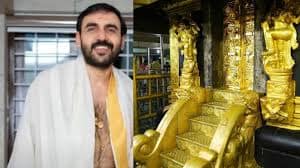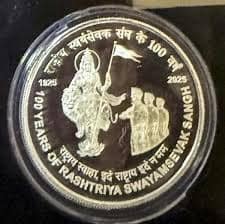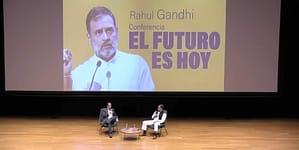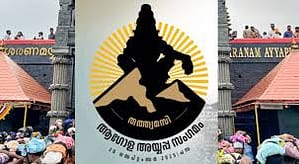Exponews political desk.
V.S. Achuthanandan, the former Chief Minister of Kerala who passed away aged 101 on Monday evening in Thiruvananthapuram, was more of a state chieftain than a national leader. But in his battleground, the state of Kerala, he commanded widespread respect and loyalty similar to that the “Comandante Fidel Castro” evoked in the communist citadel in the Caribbean, Cuba. What distinguished VS from most of his political peers was that his popularity was not restricted to the cadre base of his party, the Communist Party of India (Marxist). In the last few decades of his life, he transcended the image of a hard-line commissar and transformed into a mass leader, whose popularity the CPI-M both desired and feared, with consequences for his political career. The last of the titans who built the Communist movement in the country – VS joined the undivided Communist Party of India (CPI) in 1940 at the age of 17 – he was representative of a generation of pre-Independence politicians, incorruptible, disciplined, frugal in needs, and fiercely committed to the values and dreams that inspired him to join politics. In practical terms, his politics and worldview were provincial, but it was underwritten by a solidarity with the poor.
VS lost both his parents by the time he turned 12 and dropped out of school early. Born in an Ezhava (an OBC community) family, he joined the lower rungs of the labour force in Alappuzha, then an industrial town in the Travancore state in the late 1930s, and simultaneously, the CPI, which was organising workers in coir factories, port and the large paddy fields in Kuttanad, the hinterland of Alappuzha. He came under the tutelage of P Krishna Pillai, the “comrade” who built the base for a powerful Communist movement across the different regions that later came to constitute Kerala in the 1930s and 40s. VS was arrested and tortured in the aftermath of the 1946 Punnapra-Vayalar uprising of peasants and workers, which was ruthlessly crushed by the Travancore state. Achuthanandan was very much part of this uprising against C.P. Ramaswami Iyer, then-Prime Minister (Diwan) of the erstwhile Travancore princely state. Named after the places where the agitation began and ended, it was the Punnapra-Vayalar that made Achuthanandan a staunch communist. CP’s police tried to suppress the agitation, but angry workers stormed the police camp in Punnapra on October 24, 1946. The police gunned down 29 people. Two days later, on the 26th, the workers demolished the wooden bridge in Mararikulam to stop the Travancore army from proceeding to Vayalar. Six of these workers were shot dead. On October 27, the army massacred more than a thousand agitators in Punnapra and Vayalar. Achuthanandan, who was just 23, was instrumental in inspiring the workers to continue their fight. Police launched a manhunt for him and later arrested him from a beedi labourer’s house in Poonjar, Kottayam, on October 28. Travancore police brutally tortured him in the lock-up and inflicted deep wounds on his body with byuonet.
In the 1950s and 60s, VS distinguished himself as an organiser. He was the district secretary of Alappuzha during the first assembly elections (1957) after the formation of Kerala state, which saw the CPI assuming office. He was one of the 32 senior leaders who walked out of the CPI National Council to form the CPI-M in 1964. In 1980, he became the state secretary of the CPI-M and headed the organisation for 12 years, which saw a remarkable expansion of the party’s influence in the state, especially among the students and youth through the Students Federation of India and the Democratic Youth Federation of India. This was also a period of intense inner-party struggle, with EMS Namboodiripad articulating a new line on secularism that shunned alliance with the Muslim League with the full backing of VS. Ironically, this tactical line helped the CPI-M and the LDF consolidate the Hindu vote and win the 1987 assembly polls. The quintessential party head, VS, brooked no deviation from the party line, and stalwarts like MV Raghavan were forced to leave the party.
VS entered electoral politics in 1965, winning his first election in 1967 from the Ambalappuzha assembly constituency. He was elected to the Kerala assembly seven times and lost elections thrice, once in 1996, when he led the Left Democratic Front (LDF) to power and was tipped to become the chief minister (CM) of Kerala. This poll defeat was attributed to inner-party sabotage. Five years later, the LDF lost power, but VS emerged victorious and entered a remarkable phase of his political career as the opposition leader. The years 2001 to 2006 saw a major makeover in VS’s political personality as he consciously broke with the party apparatus and established himself as a crusader against corruption, violence against women, and for environmental causes. The sight of a man in his 80s climbing the steep slopes of the rain-soaked Mathikattan shola forests, leading street campaigns against sex crimes, championing the needs of the poor, energised the civil society, which backed him to the hilt. One of those days, VS told this reporter that every morning he would scan newspaper headlines, pick up public concerns, and reach out to the affected, irrespective of their party loyalties. This, of course, put him on a collision course with the party, which denied him the ticket to contest in the 2006 assembly elections. An unprecedented rebellion broke out with workers, disregarding the party diktat, hitting the streets, raising the demand that VS was the people’s choice for the CM’s office. VS was early to spot the new Kerala, where a Left-minded middle class, steeped in egalitarian mores, had aligned with the underclass to speak a new politics that transcended red lines drawn by caste, faith and party. The CPI-M, which has expelled senior leaders for much milder reasons, quickly restored his candidature, fearful that VS could split the party.
A beaming VS campaigned hard to win the state for LDF and became the CM. He nearly led the party to an unprecedented second term but lost office by the margin of a mere two seats, more because of infighting within the party. His charisma and energetic campaign were instrumental in LDF winning the 2016 polls. At 93, he did 200 kms daily on the road, covering 62 constituencies across the state’s 14 districts, addressing delirious crowds that would wait long hours and greet him with the roar, kanne karale VSse (Our eyes, our heart, our VS). Post results, however, he had to make way for Pinarayi Vijayan, once a protege and later, his bete noire in the party, as CM.
VS was a quintessential fighter, groomed in the agitationist mode of working-class politics. He had no family, legacy or caste capital. This served him well in the organisation and the Opposition ranks. But the doctrinaire demagogue in him was a limiting influence in office. He could gauge public mood and knew how to play to the gallery, but that populism, rooted in the mores of working-class politics, did not help him negotiate the labyrinths of administration.
VS Achuthanandan’s decades-long rivalry with Pinarayi Vijayan profoundly shaped Kerala’s political landscape, exposing deep factionalism within the CPI(M). Rooted in ideological differences and power struggles, this feud saw VS championing a purist Marxist line against Vijayan’s pragmatic approach. V.S. Achuthanandan had many political rivals during his long career, thanks to his sharp tongue and unrelenting stance on issues close to his heart. One such epic and enduring rivalry was, ironically, with his party comrade and current Kerala Chief Minister, Pinarayi Vijayan. Their decades-long feud—rooted in ideological differences, personal animosity, and power struggles—has significantly shaped the political landscape of Kerala and exposed the deep factionalism within the CPI(M). As an old-school Marxist, VS represented the purist Left, staunchly anti-corporate section within the CPI(M). His rigid stance earned him the moniker vikasana virodhi (anti-development). Vijayan, in contrast, embodied pragmatism. He was open to engaging even with neo-liberal policies and corporate-friendly approaches, creating a fundamental ideological rift between the two.
Interestingly, Vijayan was once seen as a close associate of VS. But the relationship soured in the late 1990s as Pinarayi started consolidating power within the party. In 1998, Pinarayi succeeded Chadayan Govindan as CPI(M)’s Kerala state secretary, a position he held until 2015. This period witnessed extreme factionalism within the party, with VS and Vijayan leading opposing camps. While Vijayan, backed by the state leadership, aimed to quash factional tendencies, VS emerged as the face of internal dissent, relying on mass public support and ideological rigidity.
According to VS’s biographer P. Jayanath, there were two key moments when party leaders feared VS might leave the CPI(M). The first was after the 2005 Malappuram state conference, where the VS faction was decisively sidelined. The second came in 2015, following his dramatic walkout from the Alappuzha state conference. Both instances stemmed from power struggles with the Vijayan camp. At the 2005 Malappuram conference, all candidates proposed by VS for the state committee were defeated. The state committee, dominated by Vijayan’s faction, re-elected him as state secretary. Later that year, VS was also removed as editor of the party mouthpiece Desabhimani, further diminishing his clout. While Vijayan’s grip over the party organisation strengthened, VS’s public image as a wronged communist only grew stronger.
In 2007, the intra-party feud reached a new low. Both VS and Vijayan were suspended from the Politburo for publicly criticising each other, a violation of party discipline. Though the suspensions were temporary, they made the rift starkly visible. In 2009, VS was demoted again for his public stance on the SNC-Lavalin corruption case—allegations related to a 1996 deal signed by Vijayan as power minister. VS subtly questioned the party’s silence on the matter. His stance angered the leadership and intensified internal tensions. In 2011, Vijayan’s faction tried to deny VS—then 87 years old—a ticket for the assembly elections, citing age and health. But intense public backlash forced the Politburo to reverse the decision. VS contested from Malampuzha, won, and became the chief minister. The murder of T.P. Chandrasekharan, a former CPI(M) leader who founded the Revolutionary Marxist Party (RMP), in 2012 added fuel to the fire. While Vijayan branded Chandrasekharan a “traitor,” VS paid homage to the slain leader, further highlighting the divide. At the 2015 state conference in Alappuzha, VS walked out in protest after the annual report, prepared by Vijayan’s faction, criticising his “anti-party activities.” A resolution was passed labeling VS a “factionalist”. Yet, his immense popularity protected him from expulsion. After the 2016 assembly elections, the CPI(M) chose Vijayan to lead the LDF government, sidelining VS. To mitigate public resentment, VS was appointed chairman of the Administrative Reforms Commission with cabinet rank—an apparent consolation prize. VS, however, expressed disappointment. This phase marked the end of the open VS-Pinarayi Vijayan feud, with the latter cementing his control over both the party and the government.
Vijayan chose to downplay the rivalry in the years post the elections. He also paid a rich tribute to the veteran Communist leader on X. ” A glorious era of revolutionary will and persistence comes to an end with the passing of our beloved Comrade V. S. Achuthanandan. His life – an illustrious saga of struggles like Punnapra-Vayalar, leadership of toiling agricultural workers, unwavering commitment as an organiser, and as an efficient administrator – remains a limitless repository of inspiration and lessons. As a comrade and a resolute fighter of the people, Comrade VS, as he was fondly known, stands tall as a doyen of Marxist ideology, unyielding in his fight against the exploitative capitalist order. Expressing deepest sorrow at his passing and heartfelt condolences to his family, friends, and comrades. Adieu, and Lal Salaam, Comrade VS.”













